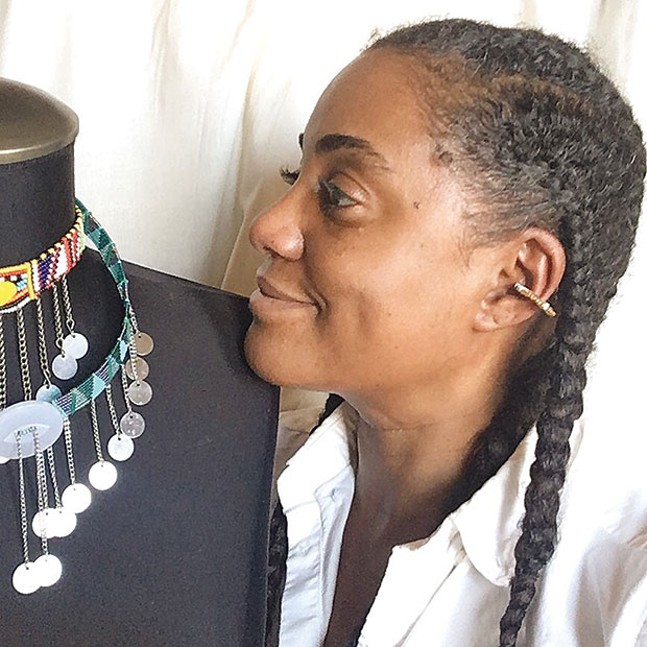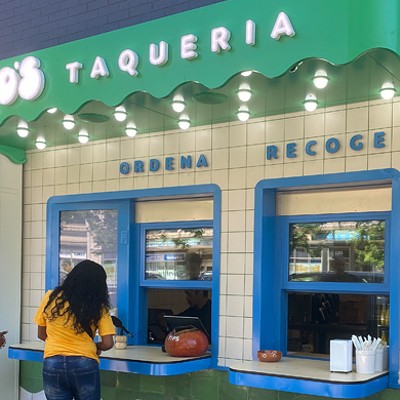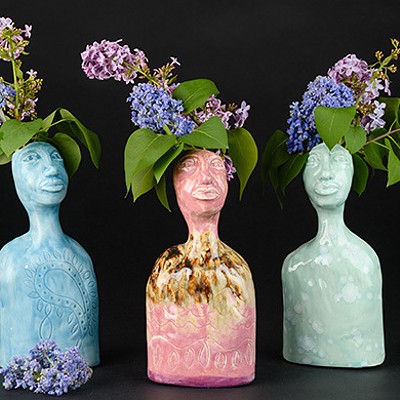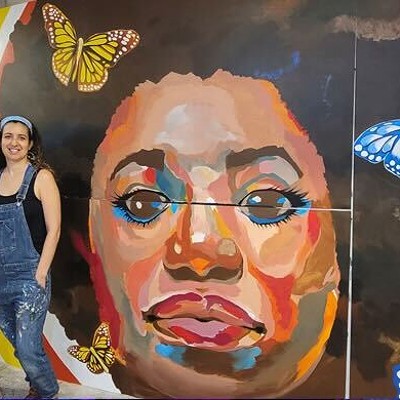Later this year, what was originally described as an “urban” and “hip-hop” themed fried-chicken restaurant will open in East Liberty. The announcement and subsequent backlash thrust the topic of cultural appropriation into the forefront in Pittsburgh. People were upset with the way the new restaurant, owned by a white man and originally called “The Coop,” was marketed and announced, given East Liberty’s history as a black cultural center that is rapidly losing its black residents and cultural institutions, due in part to development.
The owner apologized for his remarks about his new venture, and defenders point out the benefits a new restaurant might bring to the community. But now that the dust has settled, Pittsburgh City Paper decided to discuss cultural appropriation with an expert.
Tereneh Mosley is a Pittsburgh native and internationally acclaimed fashion designer, specializing in collaborations with Maasai artisans from Kenya. On June 14, she will be participating in a panel discussion titled “Cultural Appropriation and the Arts,” at Everyday Cafe, in Homewood, hosted by the Greater Pittsburgh Arts Council and the Pittsburgh Coalition for Racial Equity in the Arts.
In terms of fashion, are there problems of cultural appropriation? Is it a problem when people wear something that doesn’t align with their culture?
It depends on who is creating, who is wearing it and why. For example, the Maasai women that I work with, they are collaborating with me and they are for a global community. They want people to wear what they make. They are proud of it and they want to share it. But in doing that, I name the artisan and I continually talk about it as collaboration. I don’t claim it as all my work. That is something that’s really important. The challenge with cultural appropriation is that when you take it and name it as your own and don’t give creative credit or economic benefit to the original innovator.
Why do issues of cultural appropriation keep coming up?
We keep having these problems because it’s a continuous cycle of “I like this music, I am going to eat this food or wear these clothes” and then people think, “and now it’s mine because I am wearing it” or “I discovered this amazing new thing” that actually might have been around for hundreds of years. I think it’s this idea of taking credit for something that is not wholly yours.
And it’s not a matter of [having] to stay within your lane of your community. We have shared ideas, culture, music and have for hundreds of years and will continue to do so. But what often happens, if something is created, and by a non-white group specifically … people kind of take it on like they own it. All too often, it becomes something that is almost “theirs.” Like rock ’n’ roll, which the history and heritage is associated with black people and [was invented] almost exclusively within their race, but Elvis Presley is “the king of rock ’n’ roll.” I don’t have a problem with Elvis Presley being involved in rock ’n’ roll; I have a problem with him being called the king.
Is there a time when people go too far when calling out cultural appropriation?
The only time the cultural-appropriation argument would go too far is [after] all races and cultures receive equal credit and benefit for their contributions to humanity. Until that time, I don’t think it’s ever going to go too far. Because it still keeps happening. Until we are all able to speak to the contributions of people regardless of race, regardless of gender, regardless of [sexual] orientation, regardless of country of origin, then the problem is going to exist.
I think the challenge is, for people who are thoughtful and are trying to be intentional, they don’t know what to do. They will say, in terms of my fashion, “Well, I want to buy it, but can I wear it because I am not Maasai?” Well, I am not Maasai and I am wearing it, because this is what they have chosen to share. There are some things that they don’t share with me. There are some things that are not open for distribution. I feel like because we don’t have honest conversations about cultural appropriation and racism and white supremacy and all the things that lead into cultural appropriation, that is why we have challenges. People can look at it as a theoretical construct, but they don’t actually look at how it impacts people’s lives and how it shapes cultural society.
Can a white-American majority claim cultural appropriation?
I would have to ask that if people are adopting what people claim as white-American, how does it overall affect their economic situation, their political situation? Does it lessen their cultural value? Does it put them in any harm of being erased? Does it put them in a place where they would no longer be able to celebrate that part of their culture? If that is the case, if it’s really harming white people, then yes. But I can’t really think of anything [that is currently happening]. But if there is, I will take it off my dinner plate.



















